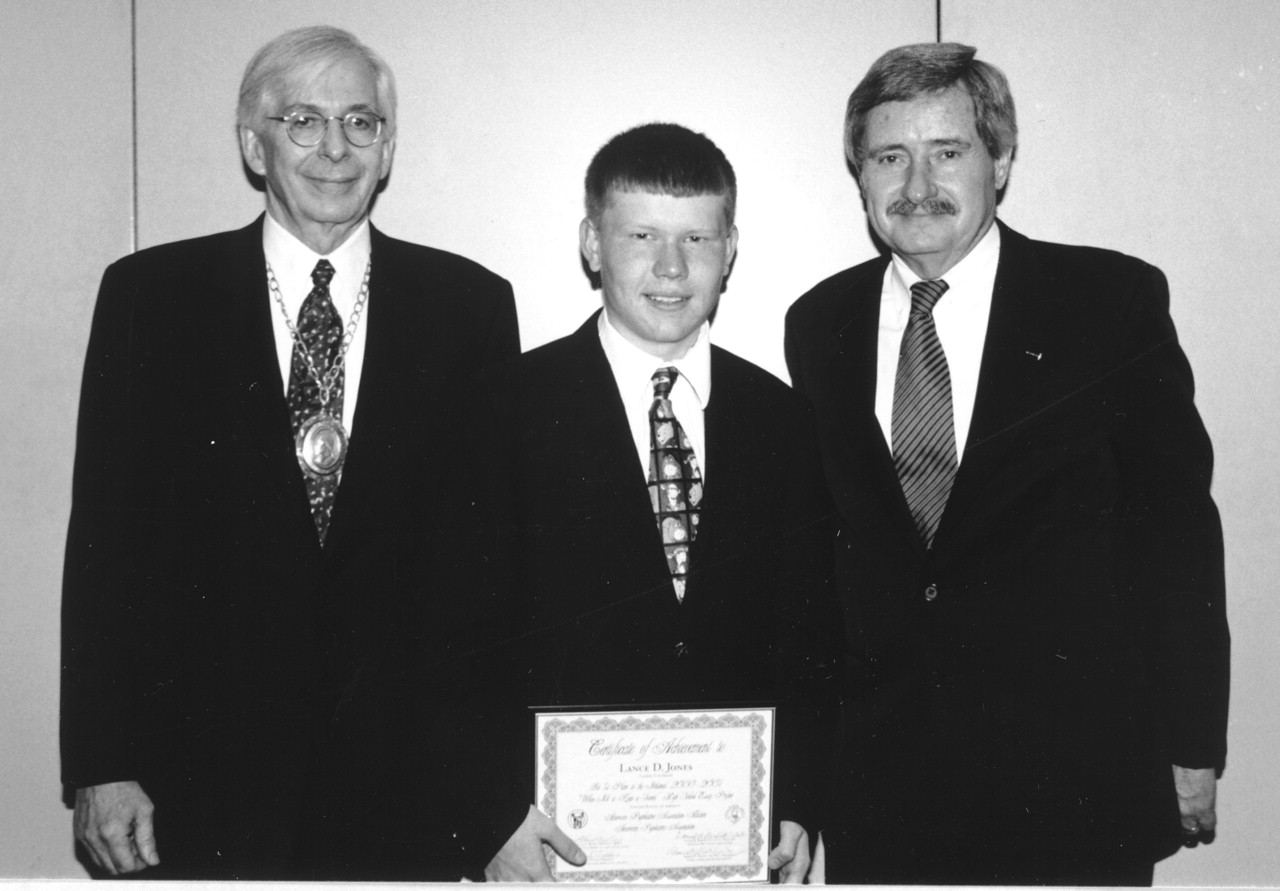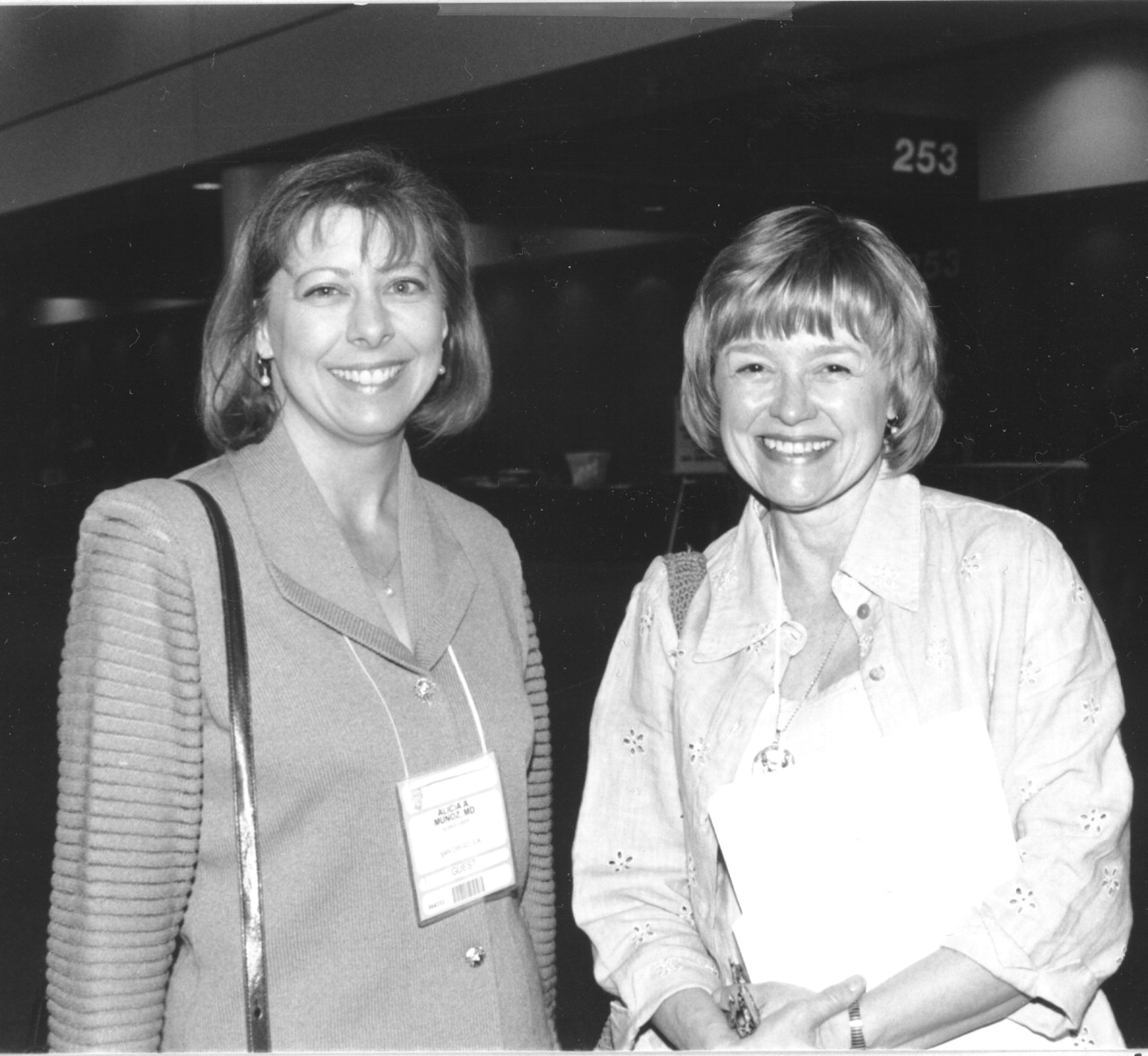Intervening With Depressed Friend Leads to Prize-Winning Essay

First-place essay contest winner Lance Jones poses with (left) APA President Daniel Borenstein, M.D., and APA Assembly Speaker Michael Pearce, M.D.
Aside from being an honor student, Jones participates in many activities and hobbies, such as calf-roping with his dad and serving as a Sunday School teacher. He said that he chose to participate in the essay contest because he was intrigued by the topic, because teen suicide is touching everyone, and because he wanted to influence people favorably with his perspective on the subject.
His essay was titled “Can Buried Thoughts Be Deadly?” It is potent testimony to the good that can ensue from not keeping a dreaded secret when a friend, classmate, or sibling shows signs of psychological distress. In his essay, Lance related how his best friend, Brian, gave signs that he had become a “stranger in trouble”—that is, gave signs of being deeply depressed and even confessed that he was thinking of killing himself. Yet rather than keep such troubling observations and confidences to himself, Lance took immediate action. First, he did some research on the Internet about suicide and suicide prevention, and then he dialed a suicide-prevention hotline. As a result, Brian received psychiatric help before it was too late. For several weeks Brian was so angry at Lance for betraying his secret that he didn’t speak to him. After that, however, he not only forgave Lance for his betrayal, but expressed his appreciation.
Winners Honored

APA Alliance President-elect Alicia Muñoz (left) poses with APA Alliance President Gail Fuller at the awards banquet.
Jennifer Nobles, a 15-year-old from Philadelphia, took second place in this year’s essay competition, and two 15-year-olds tied for third place, Robert Hatt of Lexington, Ky., and Jami DeVolder of Sherrard, Ill.
The essays by the runners-up reflect the anguish that young people experience when they suspect that siblings, friends, and classmates are in psychological and physical danger, yet do not act on their suspicions until it is too late.
For her second-place essay, Nobles received a $500 savings bond. Both Hatt and DeVolder received a $300 savings bond for their third-place essays.
Among the judges for this year’s essay competition were Borenstein; David Fassler, M.D., chair of APA’s Council on Children, Adolescents, and Their Families; Rep. Susan Davis (D-Calif.); Rep. Robert Filmer (D-Calif.); Kay Redfield Jamison, Ph.D., a psychologist and author; and Cheryl Corley, a journalist with National Public Radio.
Contest Nationally Acclaimed
Thousands of students in 22 states participated in the essay competition this year. Only three of the top essays in each state were then accepted for national judging. Some 90 percent of essays that reached the national competition dealt with depression and suicide. The remaining addressed themes such as incest, domestic violence, relationship violence, eating disorders, substance abuse, and weapon carrying.
The essay competition continues to attract increasing national publicity. For instance, it was spotlighted on National Public Radio’s “All Things Considered” in February and “Morning Edition” in March. A cable TV station popular with teens—MTV—is also interested in doing something on the competition, according to Muñoz.
“That is a positive venue,” Muñoz told Psychiatric News. “If it pans out, then we would really have an effective tool for communicating with students.”
The APA Alliance would like to hear from APA members and APA district branches about which topics they think should be addressed in next year’s “When Not to Keep a Secret” essay competition. In other words, should the competition continue to solicit essays on any mental or behavioral health problem that affects the lives of young people or should it perhaps focus on only one—say, eating disorders or substance abuse? Comments should be sent to Muñoz by phone at (619) 298-4782 or by e-mail at [email protected]. ▪



